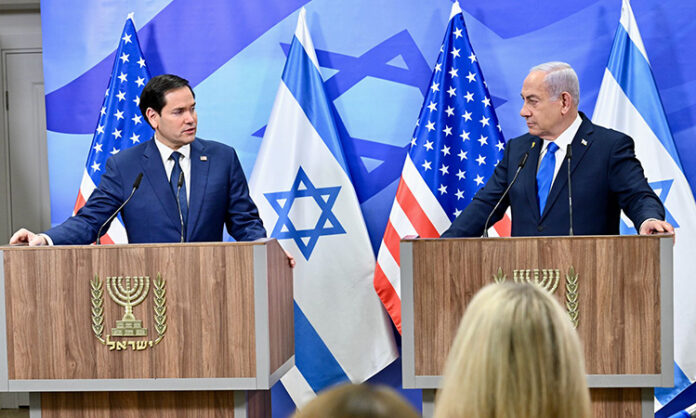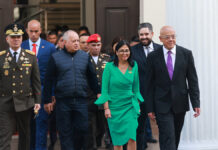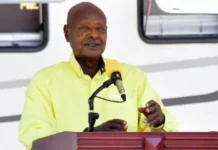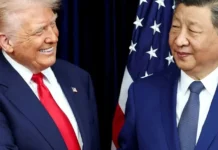U.S. Secretary of State Marco Rubio will travel to Israel this weekend as Washington grapples with growing tensions among its allies in the Middle East following Israel’s attempted strike on Hamas leaders in Qatar and a controversial push to expand settlements in the occupied West Bank.
State Department deputy spokesperson Tommy Pigott said Friday that Rubio would depart Saturday for Israel before joining President Donald Trump on his upcoming visit to Britain.
While in Israel, Rubio will stress shared U.S.-Israeli objectives, including preventing Hamas from regaining control of Gaza and securing the release of hostages taken in the October 7, 2023, attacks that killed 1,200 people and saw 251 hostages captured, according to Israeli figures.
Israel’s nearly two-year-long military campaign in Gaza has killed more than 64,000 Palestinians, local authorities say. The conflict has fueled a hunger crisis and drawn accusations of genocide, including a recent declaration by the world’s largest association of genocide scholars.
Rubio’s trip follows a high-level meeting at the White House on Friday with Qatari Prime Minister Mohammed bin Abdulrahman Al-Thani, who later met with Trump.
Qatar, a key U.S. partner, has played a central role in ceasefire and hostage negotiations, efforts thrown into disarray by Israel’s airstrike on Doha earlier this week.
U.S. officials privately described the strike as a unilateral escalation that undermined American and Israeli interests, sparking condemnation across the Arab world.
The visit comes ahead of the U.N. General Assembly later this month, where France and Britain are expected to formally recognize Palestinian statehood; a step opposed by Washington and Jerusalem.
Rubio has argued such recognition would embolden Hamas and could accelerate Israeli annexation of the West Bank, a goal of hardline members of Prime Minister Benjamin Netanyahu’s government.
Netanyahu on Thursday signed an agreement advancing a new settlement expansion that Palestinians say would cut across territory designated for a future state.
The United Arab Emirates has warned that expanding settlements could cross a “red line,” threatening the U.S.-brokered Abraham Accords that normalized relations with Israel in 2020.
Pigott said Rubio would discuss “our commitment to fight anti-Israel actions, including unilateral recognition of a Palestinian state that rewards Hamas terrorism, and lawfare at the ICC and ICJ.”
The International Criminal Court has issued a warrant for Netanyahu’s arrest, while the International Court of Justice has ordered Israel to take steps to prevent genocide.
Rubio also met Friday with families of hostages still held by Hamas, the State Department confirmed.



















